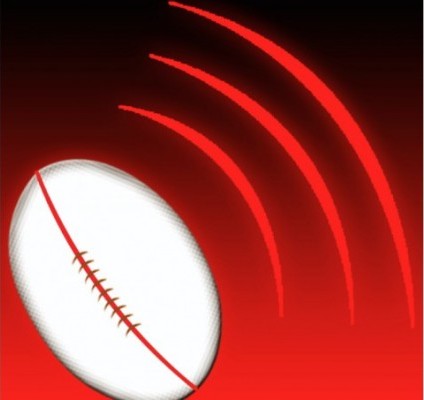Eagle Teams Have Slow SVNS Start in Dubai
Eagle Teams Have Slow SVNS Start in Dubai
The USA men and women opened their SVNS seasons in Dubai with some up-and-down performances.
USA Women
The women opened the tournament with a shutout victory over Spain, but two late tries from Canada's Charity Williams saw the second game slip away 15-10.
They finished pool play getting slammed France 38-5.
The Eagles still made the quarterfinals but were beaten comprehensively by Australia 32-5. before finishing the tournament with a 38-7 victory over Brazil for 7th.
So, for a team that has Olympic medal aspirations, not the greatest start.
It was one of those odd tournaments where the Eagles were clearly stronger than one level, and clearly not as strong as another. Only one of the five games played was close, either in victory or defeat. But it should also be remembered that Dubai is a brutal tournament for the Americans. They go from Pacific Time to UAE time, which is a shift of 12 hours—so when you play at 3PM your brain thinks it's 3AM. Playing at your peak under those conditions, even with a few days to acclimate, is enormously difficult.
USA Men
After opening the tournament with a close loss to Fiji with tries from Malachi Esdale and Marcus Tupuola, the Eagles slammed Great Britain 36-12 with both Tupuola and Esdale scoring twice. The USA gave up a try in the opening seconds but bounced back well to lead 21-7 at the break.
So on to the key matchup with France, which would determine whether the USA would make the quarterfinals.
From the start of the match the Eagles did good work to shift the ball edge-to-edge, using offloads to keep the ball alive in wider channels. A clever regathered kick in behind the defense put USA on the front foot. They shifted the ball early, once more going edge-to-edge finishing off a well-worked passage of play with good hands and a score in the corner for Lucas Lacamp.
The USA used their solid scrum platform to shift the ball to the wider channels again, with a nice dummy at full speed setting up a chance for Ben Pinkelman, who scored after bursting in off a short line. At the end of the first half, France looked to get points on the board but good contesting at lineout time led to USA relieving the first sign of pressure that France was able to show.
The USA painted a picture of a set piece move with Tapuola running quite laterally, however a variation of this move minutes later, saw them stretching the defense, and this time bringing in a runner in against the grain leading to a linebreak and a try for adison Hughes.
The contestable kickoff strategy of the USA saw the Eagles get in behind the jumper and a tap-back resulted in a loose ball, which the French scooped up for their first try of the game.
Quick reactions after a ruck penalty led to France’s second score with them finishing it off with a good set of hands.
The USA hit back by a quick try by Esdale, a solid offload off the deck got Esdale to the outside of the defense and his blistering pace did the rest—26-14 USA wins. Five line breaks produced four scoring plays. They made three of those breaks out wide, and in the middle of the field beat five defenders.
In the quarterfinals on Day Three New Zealand swamped the Americans 40-0.
This time it was New Zealand leading in the number of defenders beaten (five on the inside and two on the outside).
USA looked to survive the initial onslaught by NZ in the opening minutes. A strong carry by Pinkleman released Esdale, but he was tackled into touch, robbing the USA of their first and only real opportunity to score points in the game.
The Kiwis kept possession for the rest of the half with veteran Scott Curry scoring after a tremendous carry and offload occupied a couple of USA defenders. The restarts look worrisome as the Kiwis heavily contested the kickoffs; one receive went awry and landed in the hands of Shane Clark, who cantered in for New Zealand's second. the All Black Sevens looked to stretch the USA off the base of a scrum with a simple skip pass and lateral running leading to their third try. They rolled from there.
The Eagles ended up in 8th place after losing to Australia 26-12.
The USA looked to shift the ball to the edges from an early turnover opportunity and a good offload from the touchline led to Pinkelman crashing over the tryline. Australia decided to hit back through good continuity which saw them secure their first points, cutting back and beating a couple of USA defenders. The USA’s good edge work saw them crash over for a second try and a 12-5 lead.
The USA played all the rugby at the start of the second half however turned the ball over after advancing 75 meters from their own tryline. Both teams conceding penalties at ruck time in short succession, with Australia exploited the space and overtracking from the USA to make it 12-12.
USA absorbed further pressure and did well to make turnover on their own 5m. However a loose offload close to their own goal line saw the ball being scooped up by Australia to put them ahead 19-12.
More penalties and yellow cards mounted up for the USA and Australia combined quick feet with good offloading to finish it off.
Overall, then, some decent moments early but a team that flagged late. Discipline in the face of adversity has to be better. Australia was much better at eluding tacklers than the USA.
Thanks to Hanno Van Vuuren for analysis












